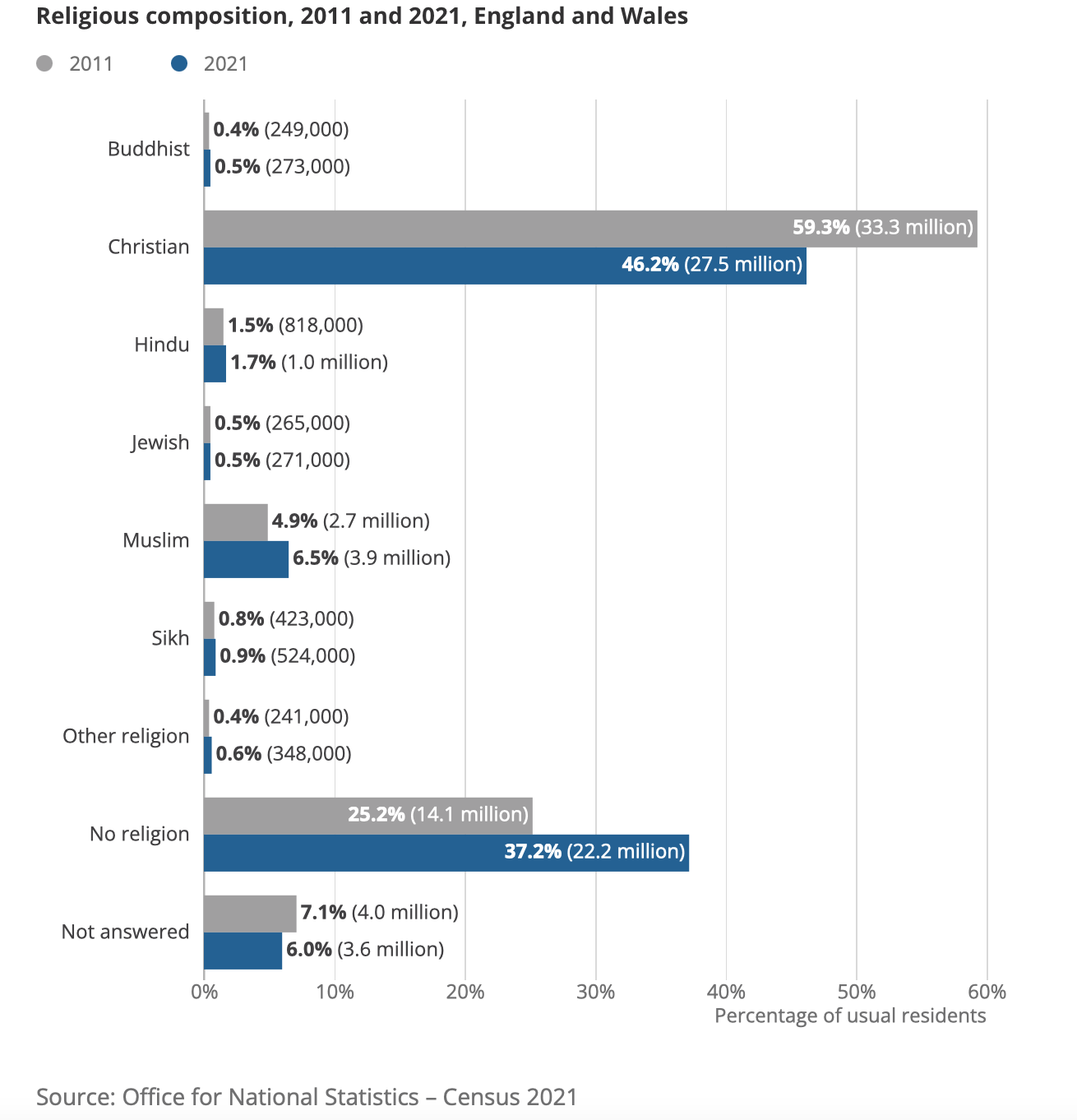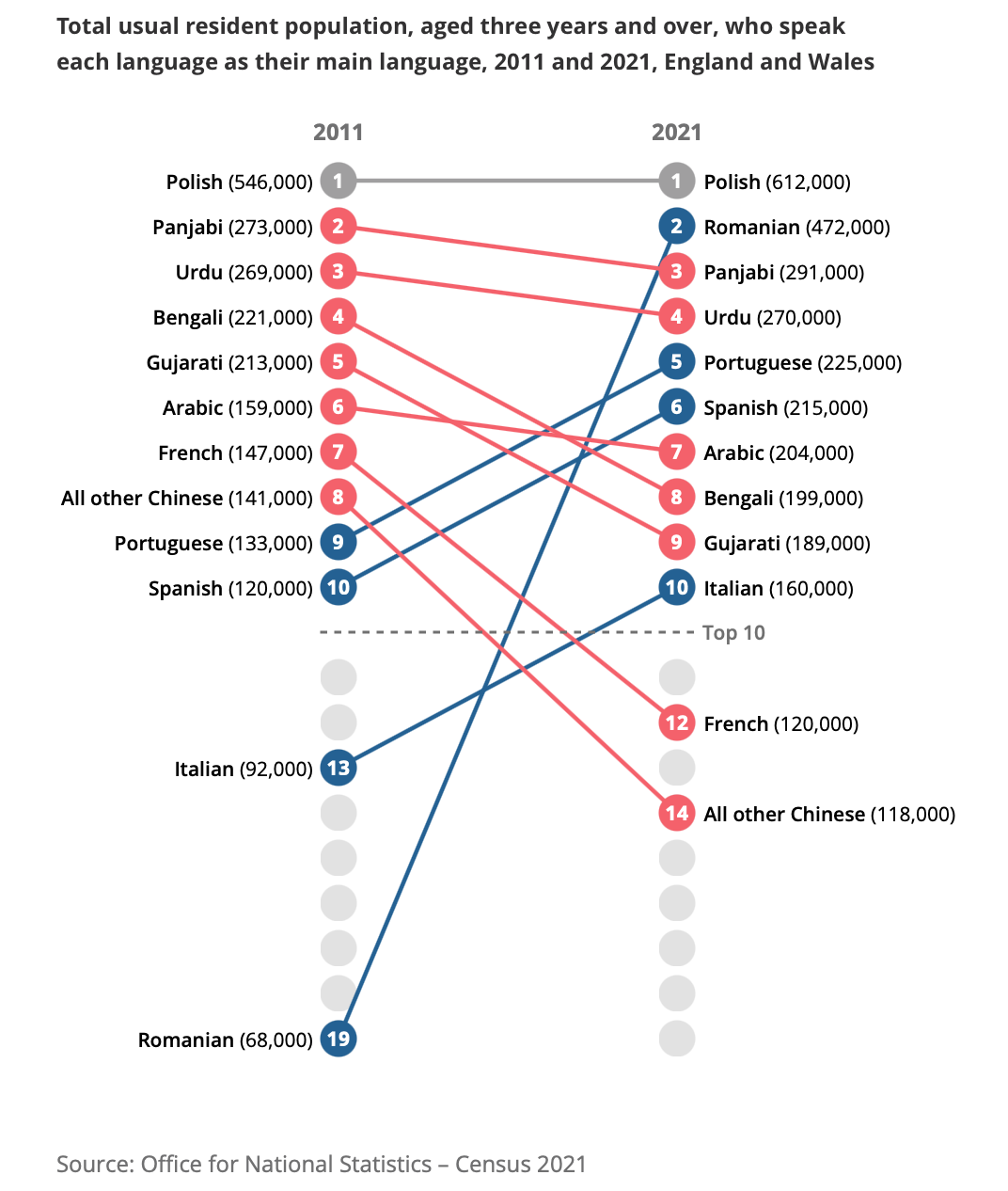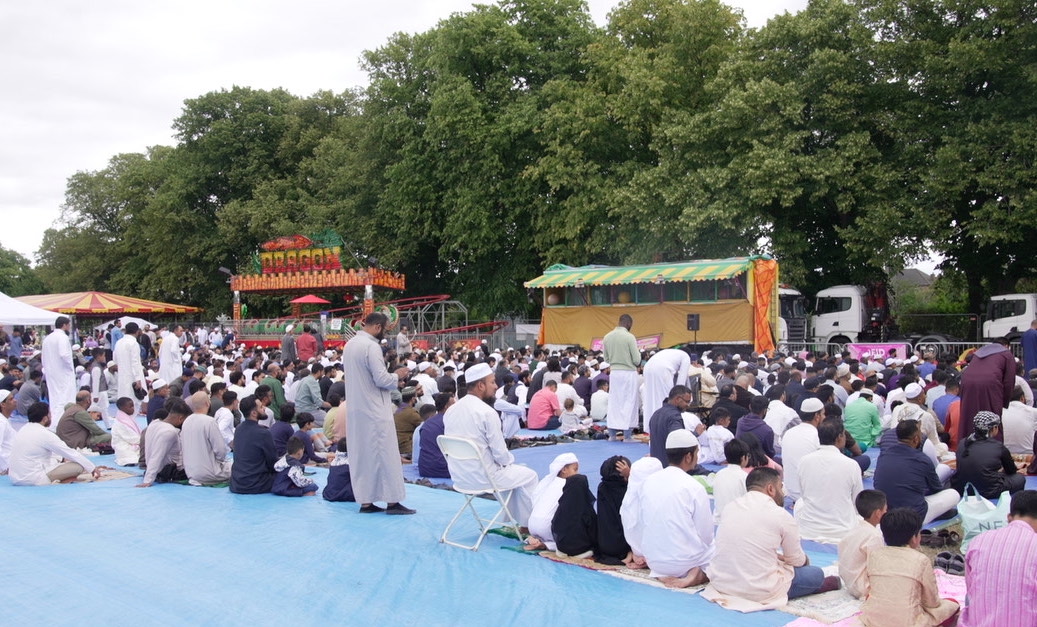The 2021 census has revealed that the number of people following Islam in England and Wales has risen 44%, while Leicester and Birmingham become the UK’s first cities to no longer have a white majority.
Overall, Muslims still make up a small minority of the overall population. People identifying as Muslim in England and Wales was 6.5% last year or 3.9 million people, up from 4.9% (2.7 million people) in 2011.
The census revealed that minority ethnic groups are upholding religious faith in society, with all the major religions registering slight increases versus ten years ago, apart from Christianity.
For the first time, fewer than half of the population described themselves as Christians. Christianity fell to 46.2%, down from 59.3% in 2011.
And it seems atheism is the big beneficiary of Christianity’s decline in society. People with no religion increased to 37.2%, up from a quarter — the second most common response after Christianity.

The census is undertaken every 10 years by the Office for National Statistics (ONS) and explores how British society is changing based on answers people give to a series of questions. The religion question was voluntary.
Faith and religion
As in 2011, the local authority with the highest Muslim population was Tower Hamlets (39.9%, up from 38.0% in 2011). Other areas with high percentages of people responding as “Muslim” included Blackburn with Darwen (35.0%) and Newham (34.8%).
London remains England’s most religiously diverse region in 2021, with over a quarter (25.3%) reporting a religion other than “Christian.”
The places with the highest numbers of people saying “no religion” were three towns in south Wales, Brighton and Hove and Norwich. They were among 11 areas where more than half of the population were not religious, most of which had relatively low ethnic minority populations.
Places with higher populations from minority ethnic backgrounds, like Harrow, Redbridge and Slough, had the lowest number of non believers.
The MCB said whilst Islam continues to be the largest non-Christian faith group, all faith leaders have cause for introspection as those identifying as ‘no religion’ has increased.
“The increase in the number of respondents stating, ‘No religion’ – from 25% in 2011 to 37% in 2021 – is cause for introspection for faith leaders: how are people fulfilling the natural quest for spirituality?” said MCB Secretary General Zara Mohammed.
Race and language
The ONS figures showed minority ethnic people make up more than half the population in Leicester (59.1%), Luton (54.8%) and the UK’s second-largest city, Birmingham (51.4%). London already had minority populations who identify as white British in 2011 at 45% and that has now dropped to 37%.
Across England and Wales, 81.7% of the population is now white, including non-British, down from 86% in 2011. Asian British make up 9.3%, up from 7.5%, while Black and Caribbean-African rose to 2.5%, up from 1.8%.
In contrast to rhetoric and perception that more Muslims are coming to the UK, the stats showed the increase of European, and specifically, eastern European migration to England and Wales over the last ten years.
The most common main languages, other than English or Welsh in Wales, were: Polish (1.1%, 612,000), Romanian (0.8%, 472,000), Panjabi (0.5%, 291,000), and Urdu (0.5%, 270,000).
The most significant increase was for people who spoke Romanian, up to 472,000 people, from 68,000) in 2011.

Muslims live in most deprived areas
The MCB said Muslims still face disproportionate levels of deprivation. Analysis by them indicates that 40% of the Muslim population of England reside in the most deprived fifth of local authority districts; almost 482,000 more Muslims now live in these most deprived locales than in 2011.
“While our nation has an increasingly ageing population, the contribution to the work force of a youthful Muslim population remains a strategic national asset. The last decade has seen more second and third generation Muslims, confident of our faith and place in society, contributing immensely to the economic recovery and vitality of our nation,” said Mohammed.
“There are, of course, areas of concern, particularly where many Muslim communities disproportionately impacted by deprivation. This is especially worrying given the concern on access to opportunity and inclusion. Policy makers now need to address these concerns, communities cannot continue to be left in cycles of poor social mobility. Young people cannot have a bright future if they do not have the best opportunities available to them.
“Whilst the Census does look at religion, the lack of wider religion-specific monitoring prevents us from fully understanding how acute the issue of under-representation of Muslims is in British society.
“These initial figures give us an opportunity to now make meaningful change and create a better Britain for all.”
















